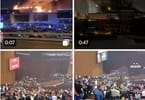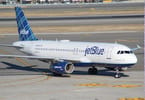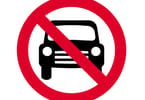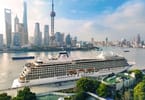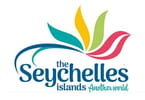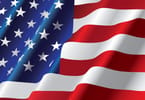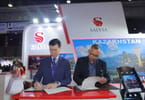THIMPHU, Bhutan – Bhutanese Prime Minister Tshering Tobgay last week told tour operators in the country to develop packages to attract Thai tourists, starting in this year’s low season of June, July and August.
The plan, according to the prime minister, was formulated in part to commemorate Bhutan’s 25 years of diplomatic relations with Thailand.
He said such an initiative would help boost low-season tourism, thereby promoting the country as a year-round tourist destination.
“For the lean months of June, July and August, we’ll offer attractive packages for Thai tourists to begin with,” the premier said, addressing over 70 tour operators gathered at the Tarayana Hall in Thimphu. “If it works, we’ll come out with country-specific products to attract tourists from each region.”
Tour operators, he said, should be able to attract Thai tourists, given the Bhutanese king’s popularity in Thailand, and the diplomatic relations the two countries enjoy.
For this to work, he would also request tourism stakeholders, such as hoteliers and the national airlines, to consider huge discounts during the specified months.
“Tourist season in Bhutan is just for a span of about five months, and the rest of the year is under-utilised,” he said, adding that the eastern and southern belts of the country are yet to be explored.
“Let us all work together to have tourists visiting the country throughout the year,” the premier said, assuring government support.
It’s been more than 40 years since the country opened to tourism, therefore there is a need to develop more products, he said. “We could try it out with Thailand, and make them feel special.”
While most tour operators welcomed it, several issues were raised.
Some suggested that the government bring down royalties during the low season, while some felt the need to include other target regions, apart from Thailand.
For most countries, some tour operators said, it was other considerations than money, while for Thais the daily tariff for visitors was an issue.
A tour operator said the baht should be accepted instead of US dollars to visit Bhutan.
Another said there could be financial implications when submitting the final account. “How do we submit the accounts for June, July and August, if we are to bring down the tariff?” he said.
Another tour operator pointed out that they would require more time to plan it out. “It would be better if the government could form a taskforce or a committee to look it to it,” he said.
Tshering Tobgay said he would raise the issue of accepting baht with the Royal Monetary Authority, and also look into the financial implications, as pointed out, but won’t consider bringing down the royalty. He also said that the focus should be just on Thai tourists for now.
The royalty, he said, was very important for the country to improve tourist amenities, for the health and education sectors. “It’s like a golden goose for us,” he said. “Let’s not play with the royalty, but consider bringing down tariffs.”
Today, the minimum daily tariff is US$250 (Bt8,240) per tourist a day during peak seasons, and $200 during lean seasons, from which the government retains a royalty of $65 and $55 per tourist a day.
The premier wasn’t keen on forming a taskforce either. “It won’t get us anywhere,” he said, adding that the initiative should start now or never.
Association of Bhutanese tour operators president Karma Lotay said it stands as a test for tour operators. “There’s nothing for tour operators to be alarmed about,” he said, adding that it was a good opportunity.
“What’s important is how we package it and, regulations remaining the same, I personally welcome the move from the government,” Karma Lotay said.
The prime minister is the chairperson of the Tourism Council Board. The presidents of the ABTO, Bhutan Chamber of Commerce and Industries, and the Hotels Association represent the private sector on the council board.
WHAT TO TAKE AWAY FROM THIS ARTICLE:
- Today, the minimum daily tariff is US$250 (Bt8,240) per tourist a day during peak seasons, and $200 during lean seasons, from which the government retains a royalty of $65 and $55 per tourist a day.
- Tshering Tobgay said he would raise the issue of accepting baht with the Royal Monetary Authority, and also look into the financial implications, as pointed out, but won’t consider bringing down the royalty.
- Tour operators, he said, should be able to attract Thai tourists, given the Bhutanese king’s popularity in Thailand, and the diplomatic relations the two countries enjoy.



